Britain’s trade unions appear to be reversing their historic decline in membership, partly thanks to increasing numbers of women joining their ranks.
New figures released by the business department on Wednesday show the number of workers who are member of trade unions rose by a net 91,000 in 2019, the third consecutive year in which the number of union members has grown after year of decline.
6.44 million people are now members of trade unions, up from a record low of 6.23 million in 2016, covering 23.5 per cent of the workforce – also slightly up on previous years.
Download the new Independent Premium app
Sharing the full story, not just the headlines
Trade unions have taken on a higher political profile during the Covid-19 crisis and were credited with arguing for the coronavirus furlough scheme, though the 2019 figures do not take this into account.
Membership was up in both the public sector and private sector, and across England, Wales and Scotland – though it fell in Northern Ireland.
The number of women in trade unions is now at the highest since the data series began in 1995, at 3.69 million. Government statisticians suggested that this was because there have been big increases in the number of employees in education, health and social care, where women employees comprise just under three quarters of the total.
“Around two-thirds of the increase in the number of female employees was accounted for jobs in these relatively highly unionised industries,” the government statistics release said.
TUC general secretary Frances O’Grady said: “Today’s figures show that union membership was growing before the coronavirus crisis hit. And we know that in the last few months, thousands of workers have been turning to unions to protect their jobs, defend their rights and keep their workplaces safe”.
Arguing that it had “never been more important to join a union”, Ms O’Grady added: “The hard work and dedication of millions of workers has brought us through this crisis. And together – in our unions – we can work our way out of recession.
“Ministers must put workers’ voices at the heart of their strategy, including through a National Recovery Council bringing together unions and employers.”
The latest news on Brexit, politics and beyond direct to your inbox
Britain has relatively buoyant trade union membership numbers compared to some of its neighbours, beating France and Germany but far lagging behind other countries like Belgium and Sweden.
But the UK’s restrictive anti-union laws mean that despite many employees being members, far fewer are actually covered by collective bargaining in practice than abroad.
In most western European countries 60-100 per cent of workers are covered by collective bargaining, with figures as high as 98 per cent in France despite lower union membership than the UK.
But in Britain just 29 per cent of employees are covered, one of the lowest rates in Europe – with most typically in the public sector.


1/50 27 May 2020
Prime Minister Boris Johnson appears before the Liaison Committee via Zoom from the cabinet room at 10 Downing Street, amid the coronavirus
10 Downing Street/Reuters

2/50 26 May 2020
Members of the public relax on the beach at Botany Bay in Margate
Getty

3/50 25 May 2020
Dominic Cummings, senior aide to Prime Minister Boris Johnson, makes a statement inside 10 Downing Street, London, over allegations he breached coronavirus lockdown restrictions
AP
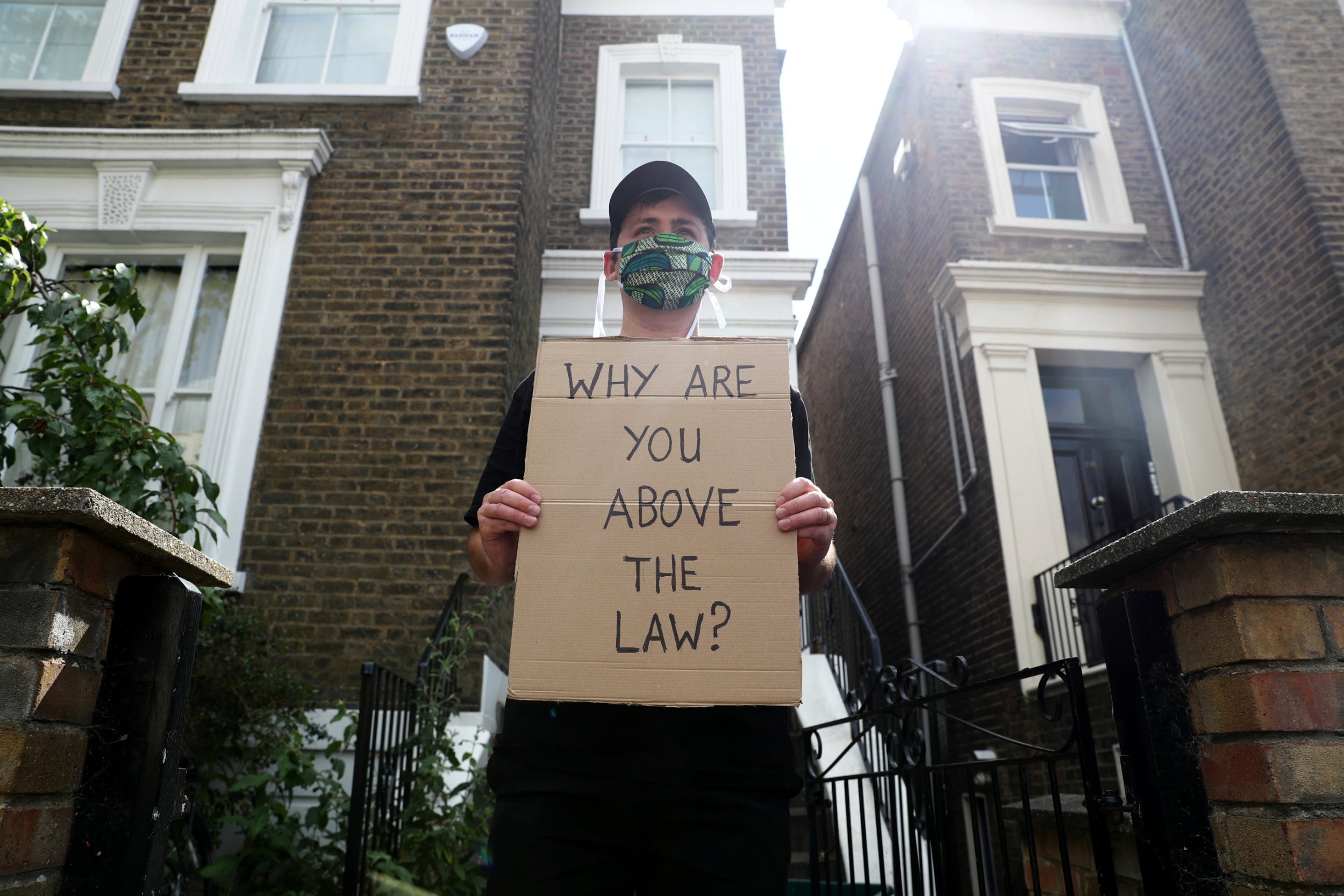
4/50 24 May 2020
A demonstrator holds a sign reading ‘Why are you above the law?’ outside the house of Dominic Cummings in London, following allegations Cummings broke coronavirus lockdown rules by travelling across the country
Reuters

5/50 23 May 2020
People take a walk near Durdle Door as cows graze in Lulworth
Reuters

6/50 22 May 2020
Waves break onto a wall at Brighton beach
Reuters
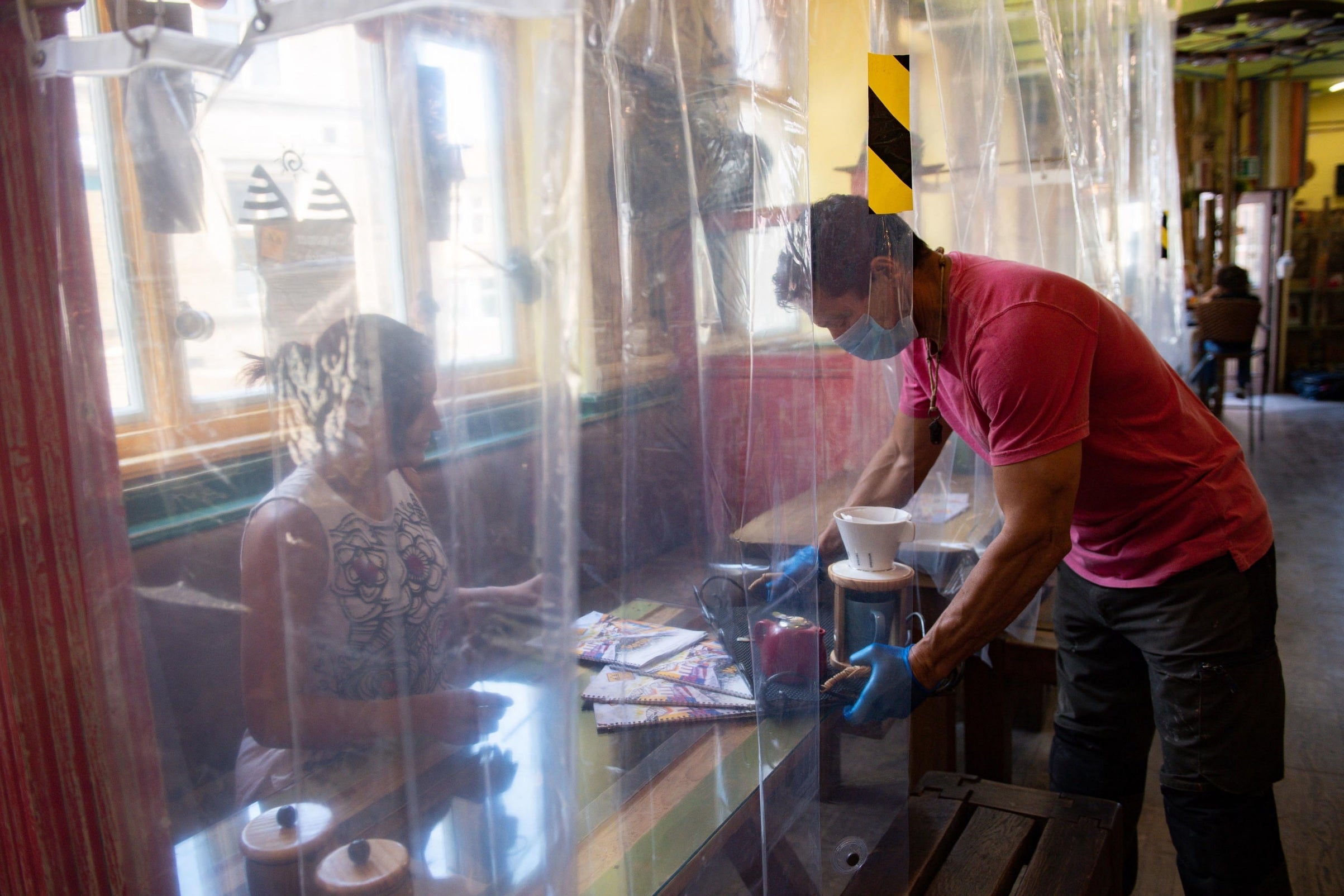
7/50 21 May 2020
Cafe owner Francini Osorio serves customers in a trial phase during the coronavirus lockdown. Osorio has installed an air purifier and 35 clear shower curtains, which will divide customers and tables, in the Francini Cafe De Colombia, Worcester, ready for the re-opening of his business as lockdown restrictions are eased
PA

8/50 20 May 2020
People at Bournemouth beach in Dorset, as people flock to parks and beaches with lockdown measures eased. The Met Office has predicted the hottest day of the year
PA

9/50 19 May 2020
A dog jumps into the water as families relax at a Lido in London
AP

10/50 18 May 2020
A fan celebrates outside Celtic Park after Celtic were crowned champions of the Scottish Premiership. Hearts were also relegated after a decision was made to conclude the season with immediate effect
PA

11/50 17 May 2020
People on Brighton beach after the introduction of measures to bring the country out of lockdown
PA

12/50 16 May 2020
Police lead away Piers Corbyn, brother of former Labour leader Jeremy Corbyn, as protesters gather in breach of lockdown rules in Hyde Park in London after the introduction of measures to bring the country out of lockdown.
PA

13/50 15 May 2020
Estonian freelance ballet dancer and choreographer, Eve Mutso performs her daily fitness routine near her home in Glasgow, Scotland
Getty

14/50 14 May 2020
Senior charge nurse Jan Ferguson views artwork “Theatre of Dott’s” by Kate Ive, inspired by Professor Norman Dott and his neurosurgery theatres at the Western General from 1960-2019. It is one of a number of artworks which sit on the walls of NHS Lothians’ Department of Clinical Neurosciences (DCN) which has been transferred into a purpose-built new home on the Little France campus in Edinburgh
PA

15/50 13 May 2020
Team GB’s karate athlete Jordan Thomas trains outside his apartment in Manchester
Reuters

16/50 12 May 2020
Nurses from central London hospitals protest on international nurses day about the chronic underfunding of the NHS and other issues surrounding the health service outside the gates of Downing Street, London
PA

17/50 11 May 2020
Waves crash at Tynemouth pier on the North East coast
PA
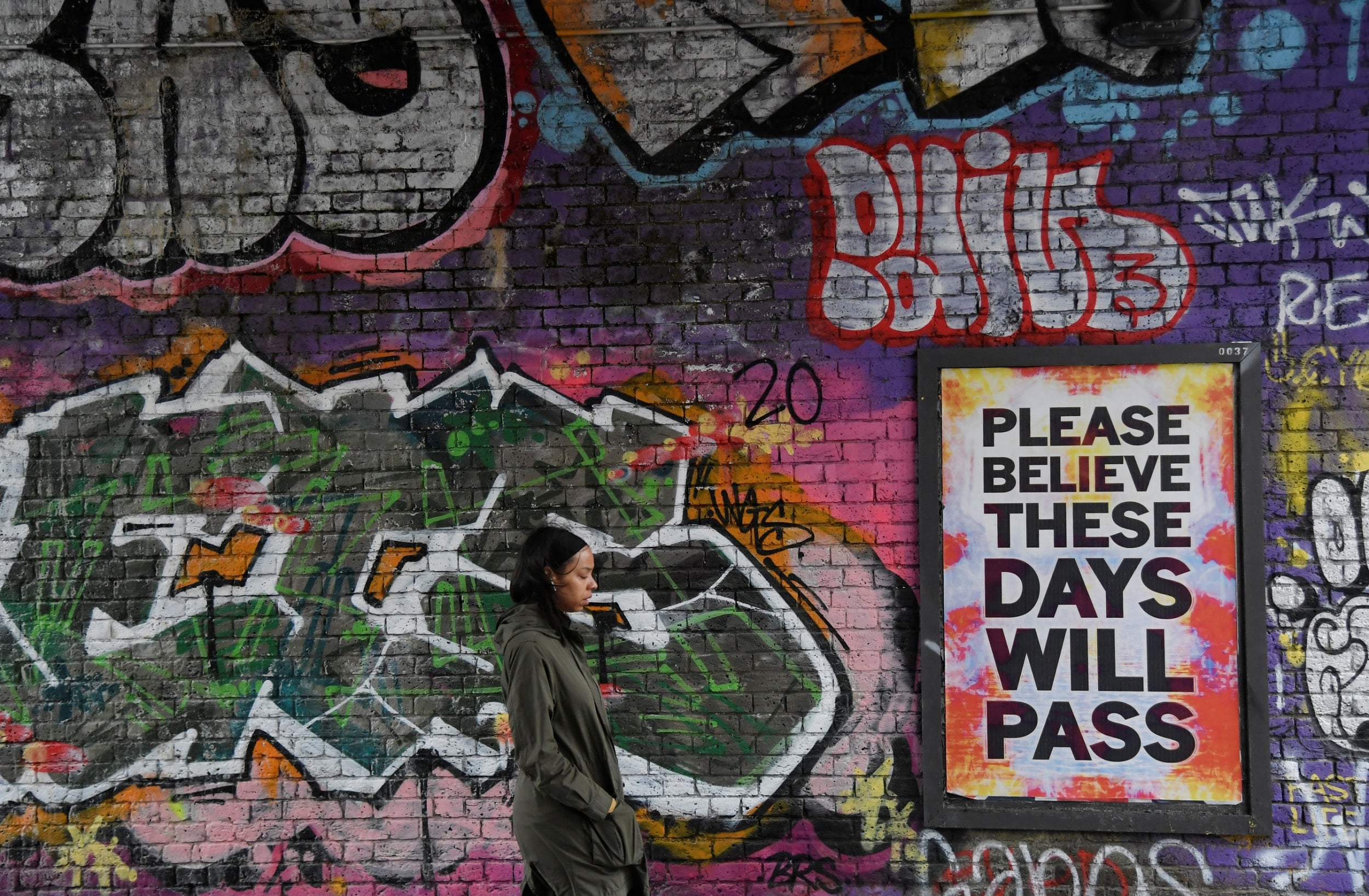
18/50 10 May 2020
A woman passes street art and a poster in East London
Reuters

19/50 9 May 2020
Police patrol the beach in Brighton
Getty

20/50 8 May 2020
The British Royal Air Force Red Arrows conduct a fly past over the statue of former British Prime Minister Winston Churchill in London to commemorate the 75th Anniversary of Victory in Europe (VE Day) in Britain
MOD/Reuters

21/50 7 May 2020
Team GB sailor Eilidh McIntyre during a training session at her home in Portsmouth
Reuters
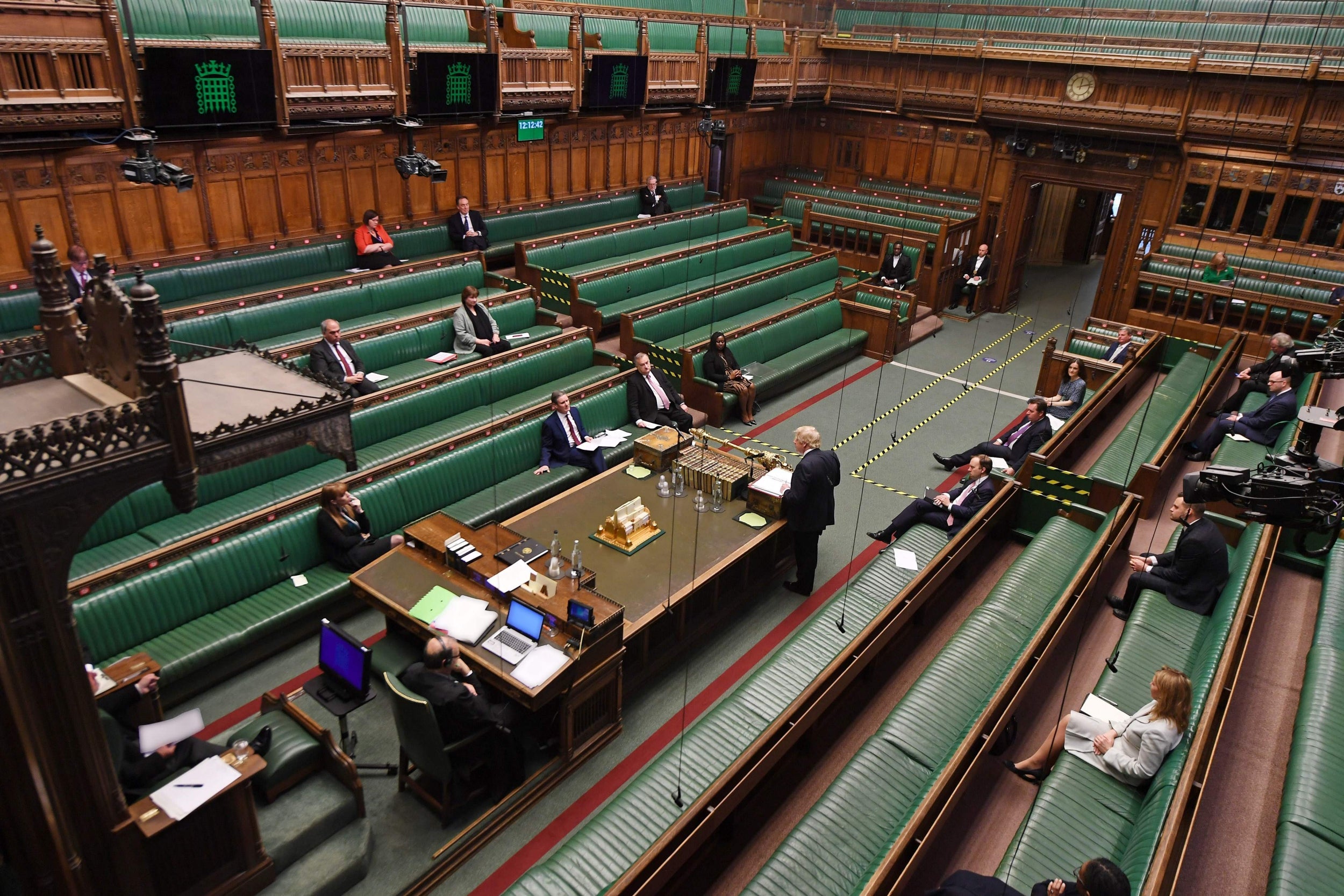
22/50 6 May 2020
Labour Party leader Keir Starmer listens to Prime Minister Boris Johnson speaking during PMQs
UK Parliament/AFP/Getty

23/50 5 May 2020
The sun appears to explode over the horizon in this montage of images captured by photographer Nick Lucas near his home in Ringwood, Hampshire. Nick took a number of pictures just a few seconds apart on a tripod mounted camera which were then combined to give the eye catching dawn image
Nick Lucas/SWNS
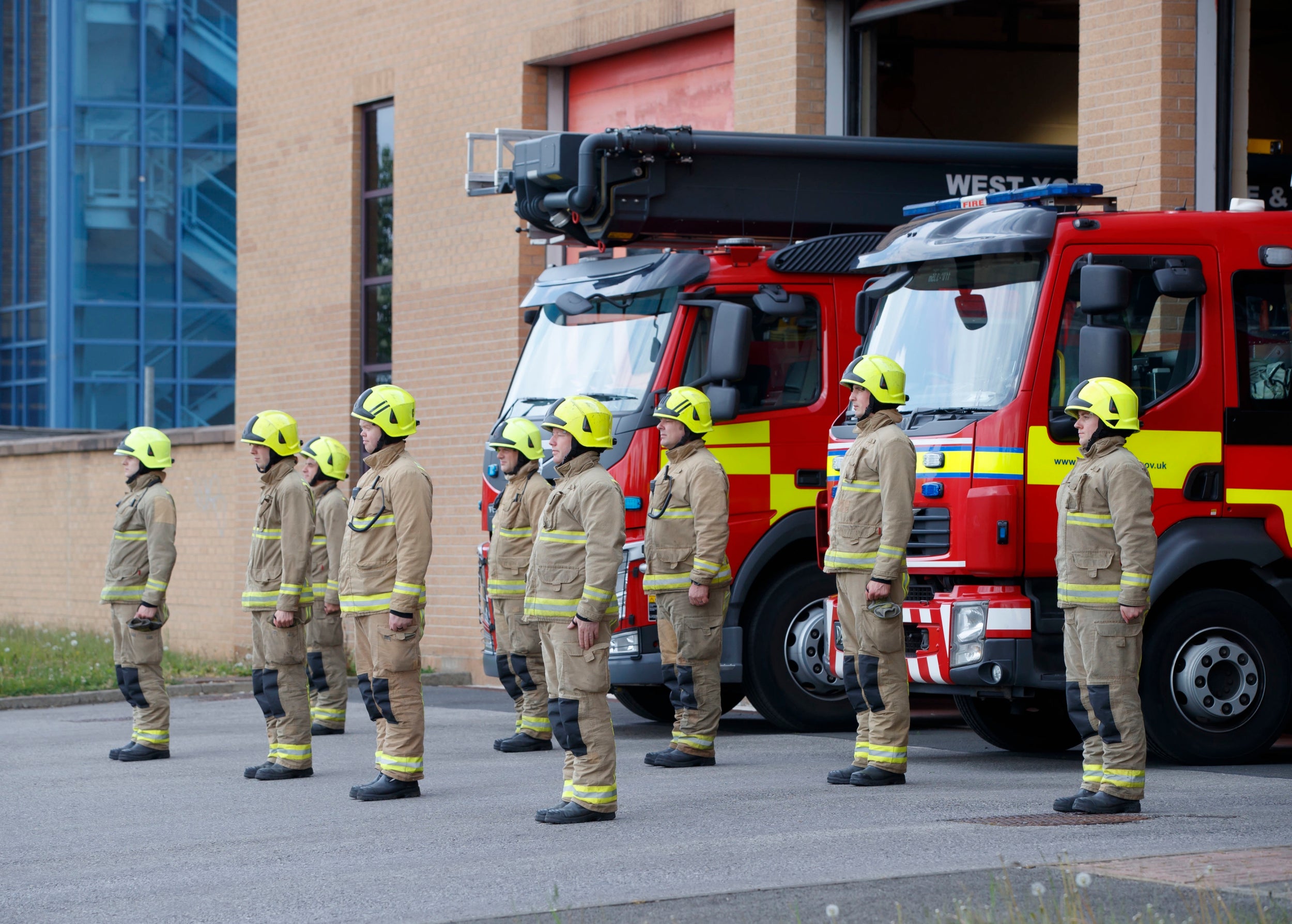
24/50 4 May 2020
Leeds Green Watch firefighters observe a minute’s silence outside the fire station in Kirkstall Rd, in memory their colleagues that lost their lives in the line of duty
PA
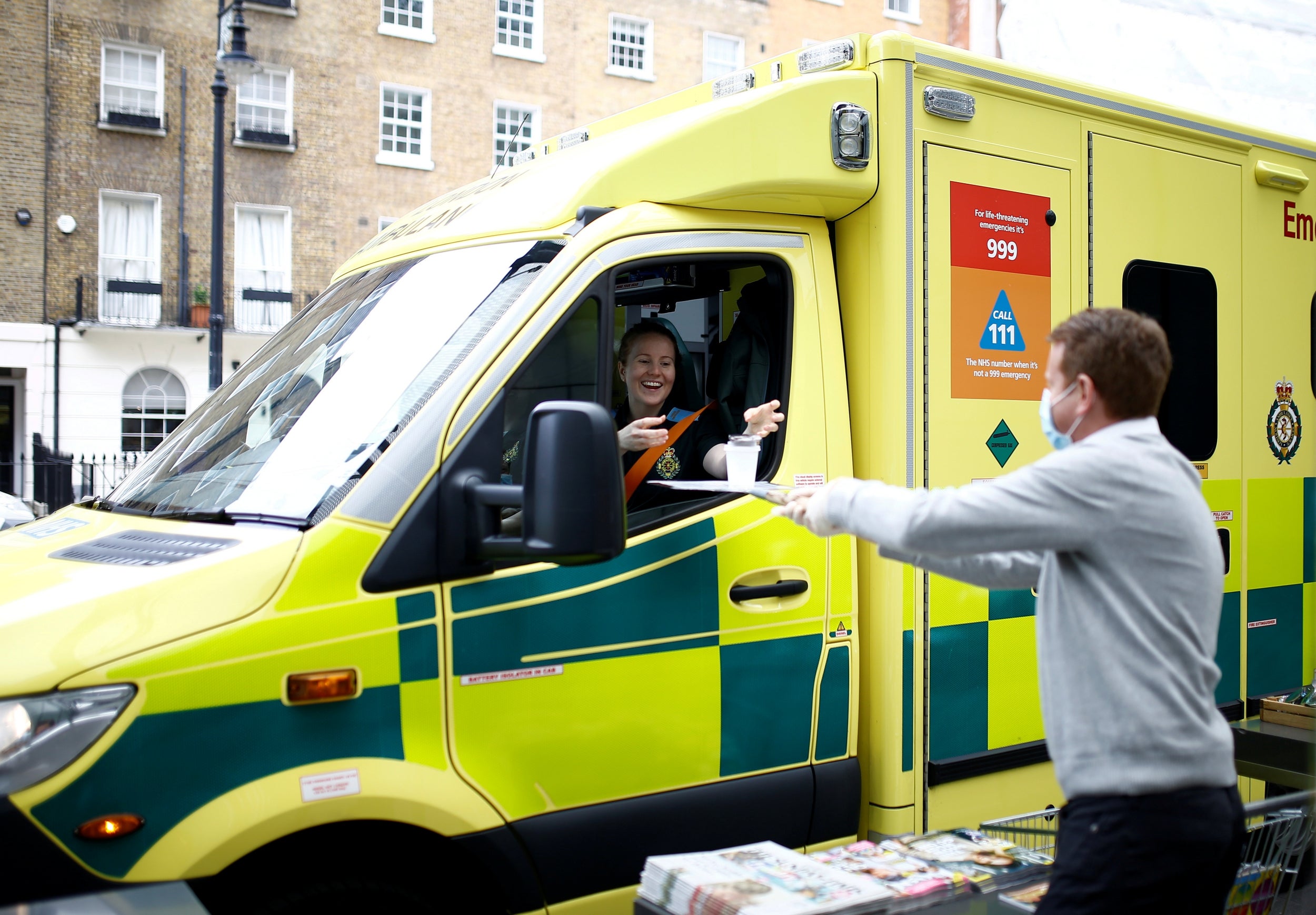
25/50 3 May 2020
Staff at The Berkeley hotel give food to ambulance workers
Reuters
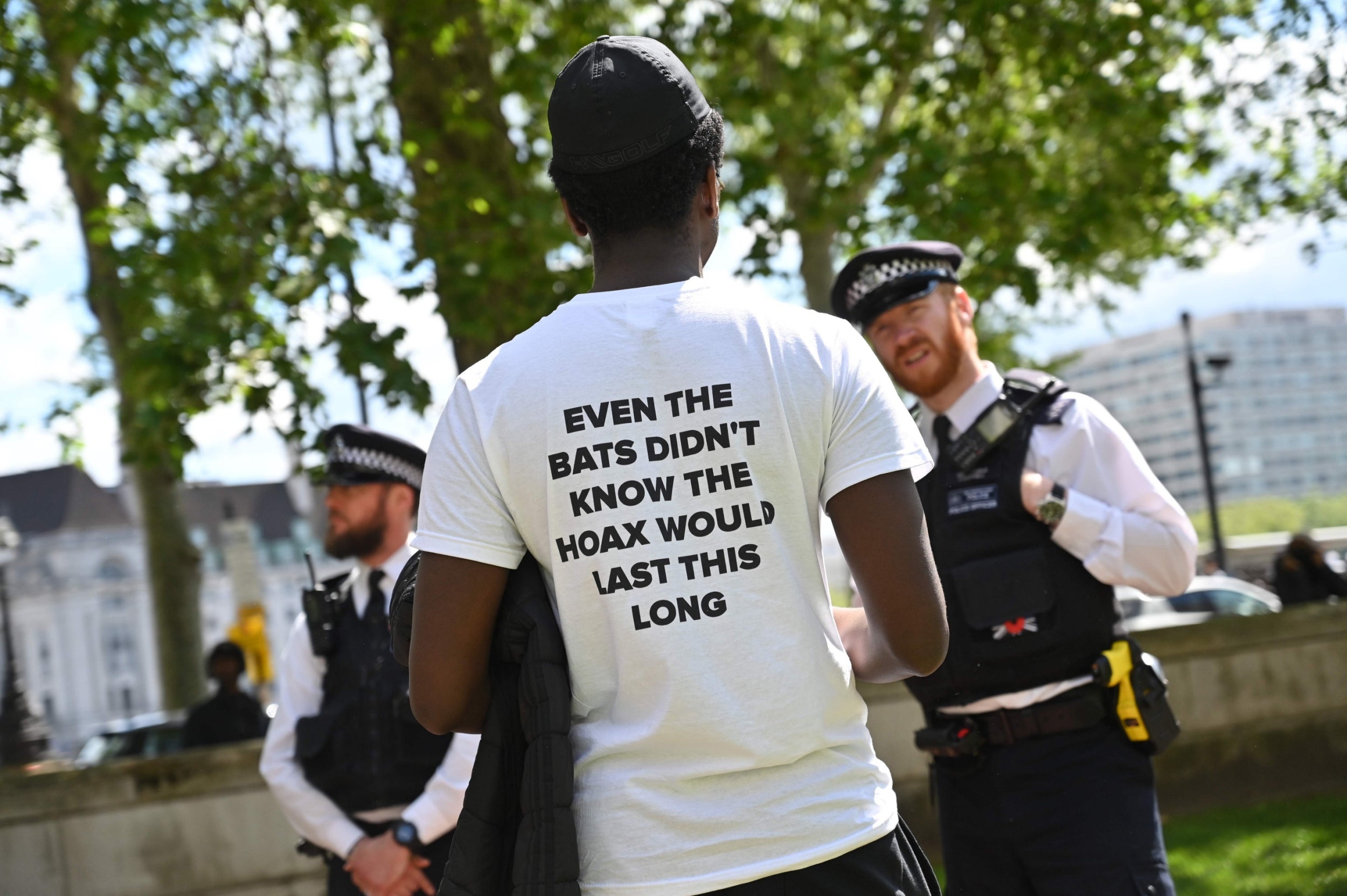
26/50 2 May 2020
One of a small group of anti-lockdown protesters speaks to a police officer as they gather outside New Scotland Yard in Victoria, London
AFP via Getty

27/50 1 May 2020
Bonnie the Llama grazes in a field in the Scottish Borders alongside a sign supporting the NHS as the UK continues in lockdown
PA

28/50 30 April 2020
Colonel Tom Moore and his daughter Hannah celebrate his 100th birthday, with an RAF flypast provided by a Spitfire and a Hurricane over his home in Marston Moretaine. Colonel Moore, formerly a Captain, received a promotion in honour of his birthday and in recognition of the funds, in excess of £30m, he raised for the NHS by walking laps of his garden
Capture the Light Photography/Getty
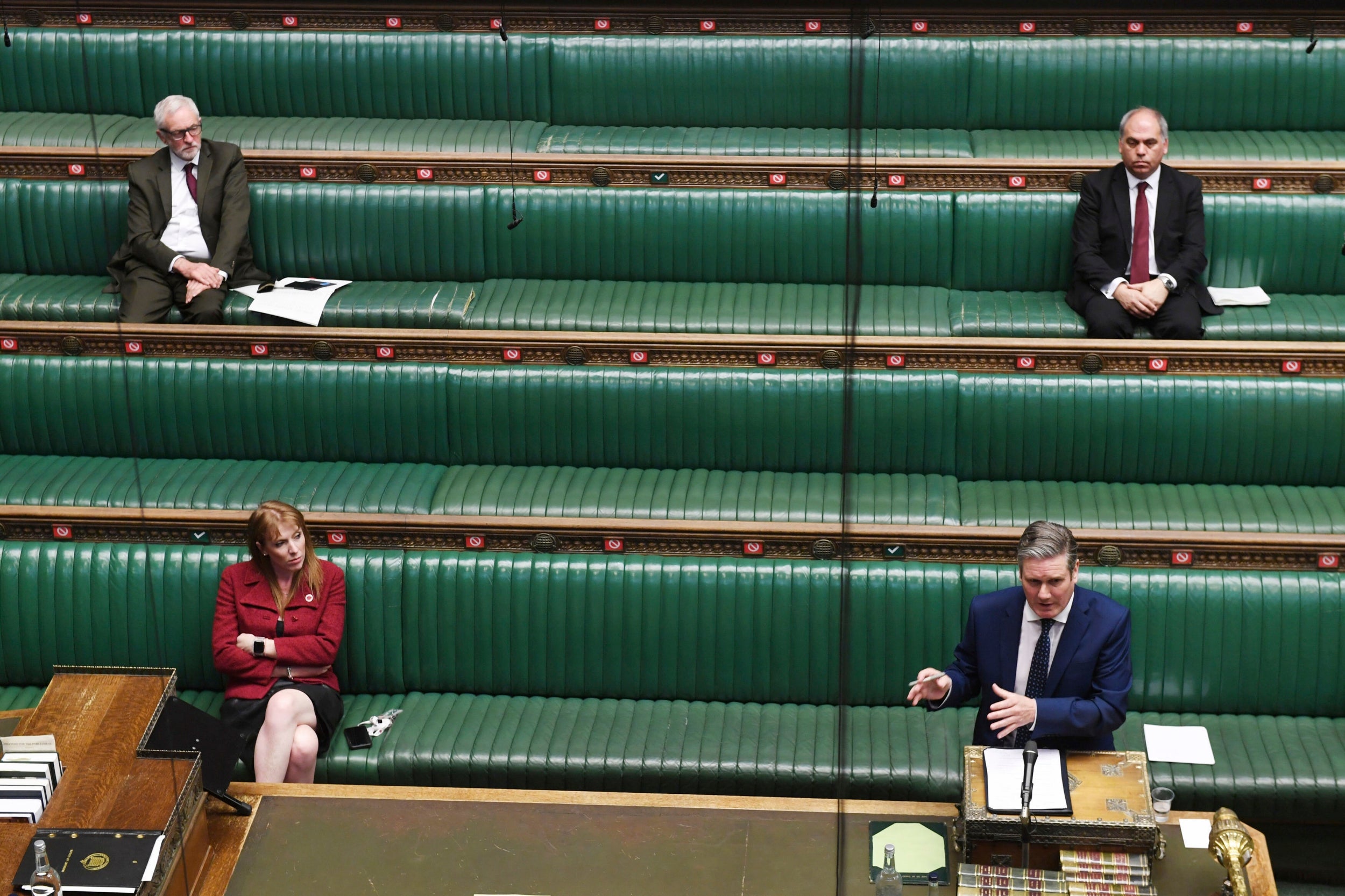
29/50 29 April 2020
Britain’s Labour leader Keir Starmer speaks during Prime Minister’s Questions, as members of Parliament observe social distancing due to the coronavirus, in the House of Commons, London, Wednesday, April 29, 2020
UK Parliament/AP

30/50 28 April 2020
NHS staff at the Mater hospital in Belfast, during a minute’s silence to pay tribute to the NHS staff and key workers who have died during the coronavirus outbreak
PA

31/50 27 April 2020
The sun rises behind redundant oil platforms moored in the Firth of Forth near Kirkcaldy, Fife. Global oil prices have crashed after the coronavirus pandemic reduced demand, with analysts warning that the oil majors may be looking at one of their biggest quarter-on-quarter profitability hits in history.
PA

32/50 26 April 2020
Frankie Lynch celebrates on the Mall where the finish of the London Marathon was due to take place today after running 2.6 miles instead of 26 miles to raise money for The Running Charity
Reuters

33/50 25 April 2020
A muslim woman walks past balloons outside the National Hospital for Neurology and Neurosurgery in London
Reuters

34/50 24 April 2020
An empty Brighton Pier, closed during the Coronavirus pandemic as temperatures reach 20 degrees in the South East
Rex

35/50 23 April 2020
Farmers work with vehicles to prepare a field next to a field of flowering rapeseed near Pontefract, West Yorkshire
AFP/Getty

36/50 22 April 2020
The Northern Lights, the Milky Way and a Lyrid meteor at the Bathing House near Howick, Northumberland, as the Lyrid meteor shower reached its peak
PA

37/50 21 April 2020
Badger the Border Collie surrounded by bluebells at Shrawley Wood in Worcestershire
PA

38/50 20 April 2020
A dog walker on Blyth beach in Northumberland
PA

39/50 19 April 2020
A piece of coronavirus themed street art grafitti in East London
AFP via Getty
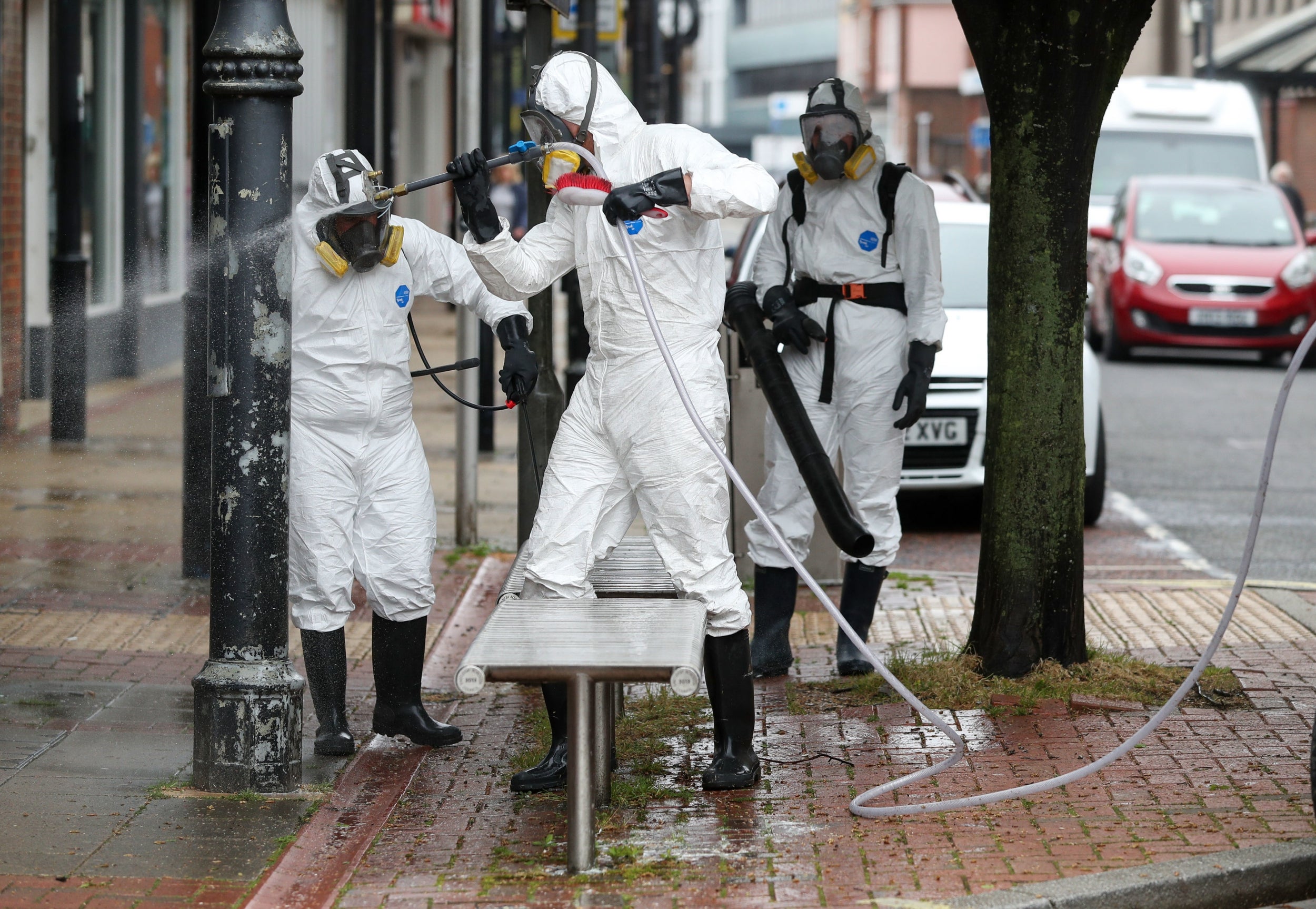
40/50 18 April 2020
Members of the City Specialist Cleaning team spray disinfectant around posts in the town centre of Eastleigh, Hampshire
PA
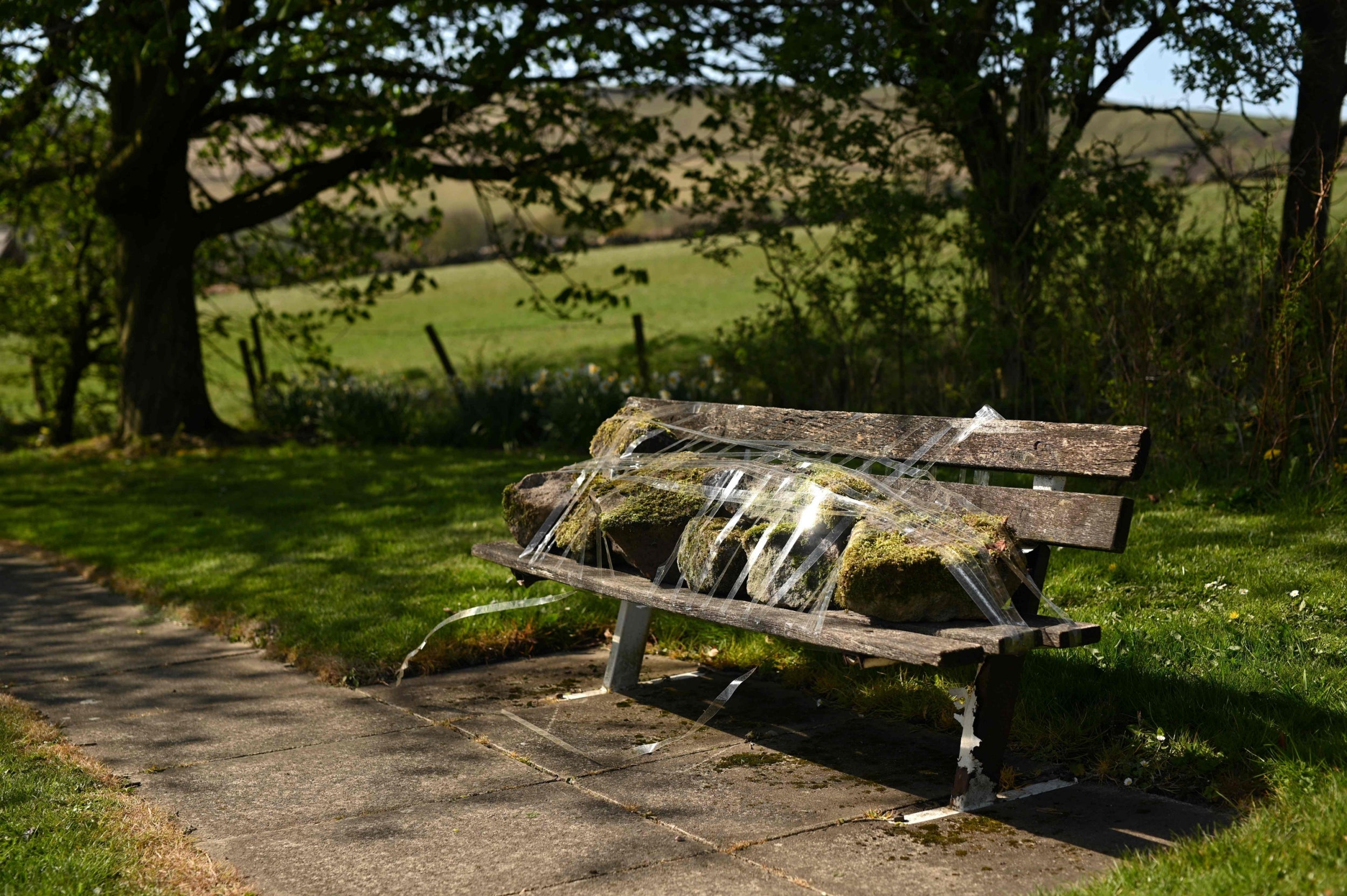
41/50 17 April 2020
A taped-up bench in the hamlet of Diglea, Greater Manchester
AFP/Getty
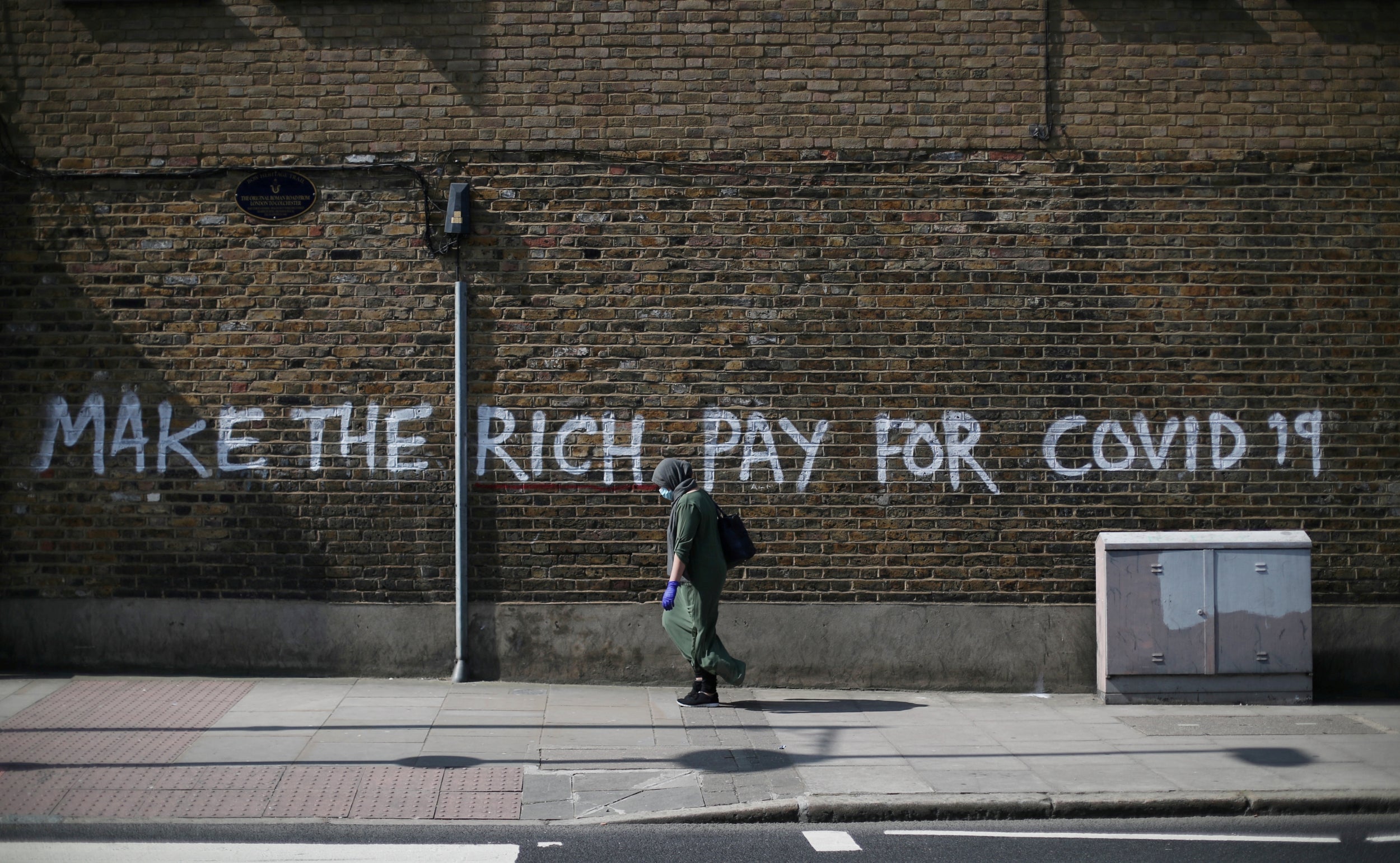
42/50 16 April 2020
A woman wearing a protective face mask and gloves walks past graffiti in Bow, London
Reuters

43/50 15 April 2020
A burned down mobile phone mast in London. According to reports, at least 20 mobile phone masts across Britain are believed to have been vandalised and government and telecom sources are increasingly concerned about the impact of conspiracy theories linking coronavirus to 5G networks
EPA
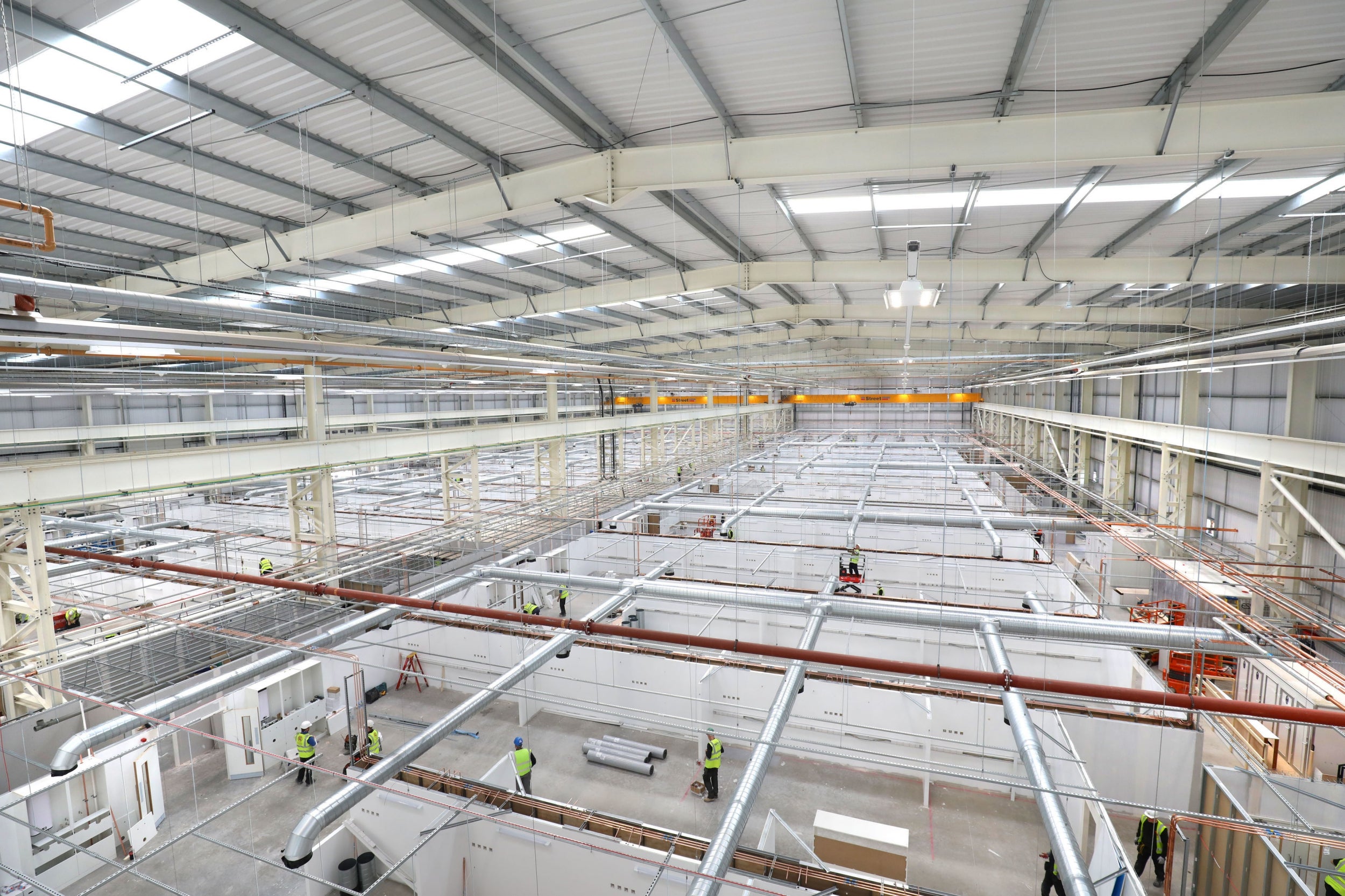
44/50 14 April 2020
The new Nightingale Hospital in Washington, Tyne and Wear, being fitted out
PA

45/50 13 April 2020
Walkers enjoy the bluebells in Wanstead Park in London
PA
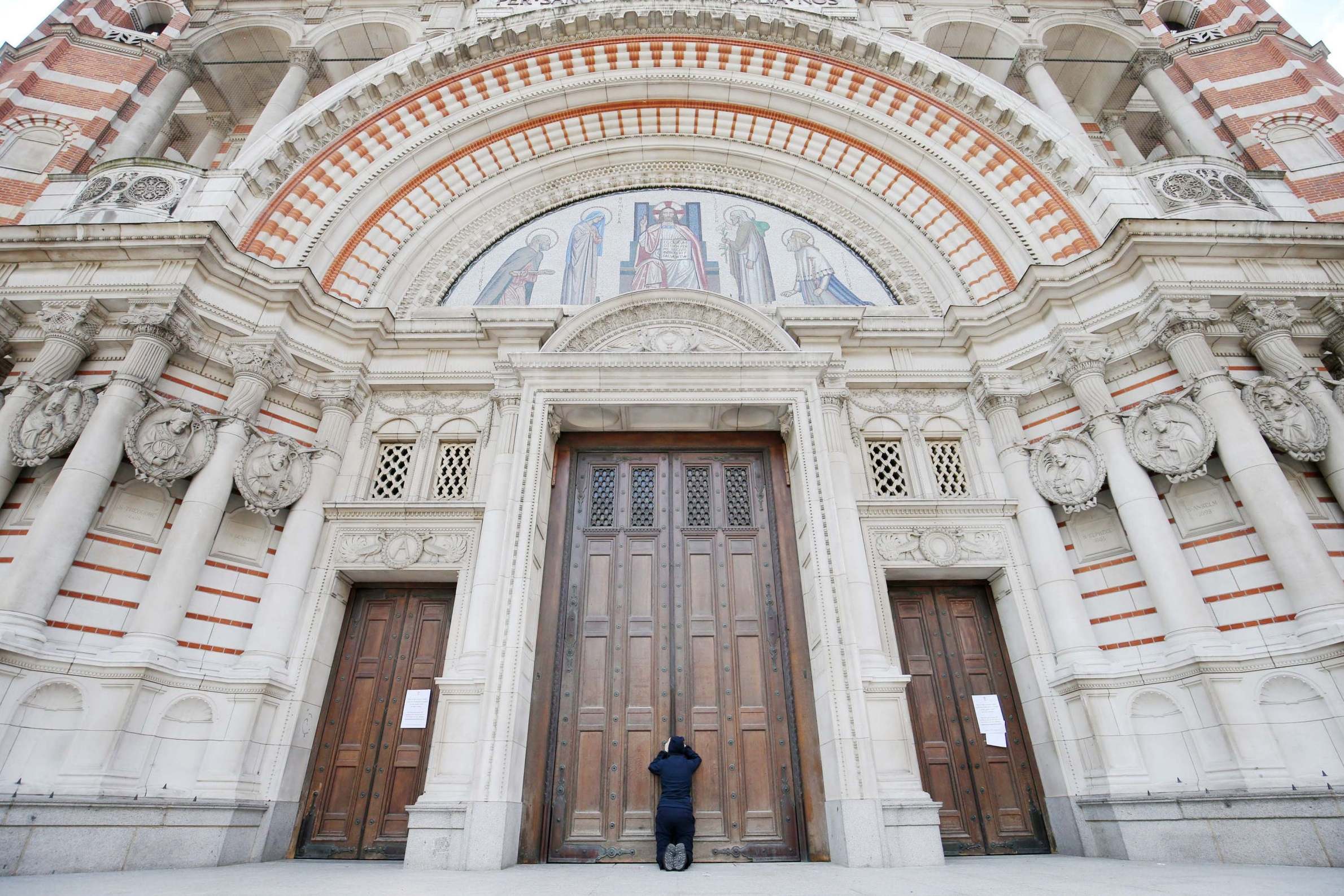
46/50 12 April 2020
A woman prays at the closed doors of Westminster Cathedral ahead of the Easter morning mass in London
PA

47/50 11 April 2020
A man jogs on an empty beach in Scarborough as the UK continues in lockdown to help curb the spread of the coronavirus
PA

48/50 10 April 2020
Military personnel testing people at a coronavirus test centre in the car park of Chessington World of Adventures
Reuters

49/50 9 April 2020
Posters drawn by children displayed in support of the NHS in a building near St Thomas’ Hospital in London
Getty
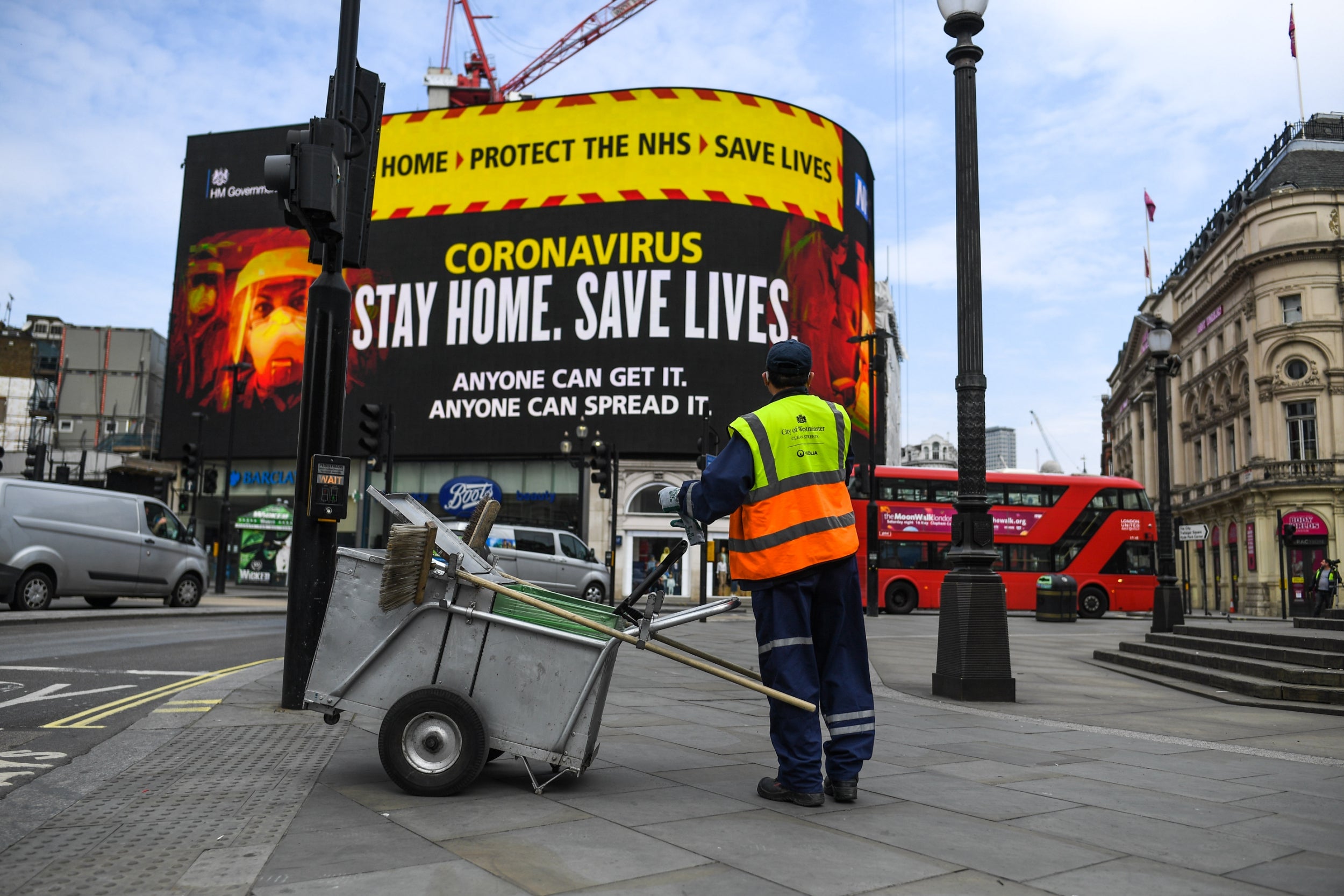
50/50 8 April 2020
A street cleaner in front of Coronavirus messaging on Picadilly Circus in London
Getty

1/50 27 May 2020
Prime Minister Boris Johnson appears before the Liaison Committee via Zoom from the cabinet room at 10 Downing Street, amid the coronavirus
10 Downing Street/Reuters

2/50 26 May 2020
Members of the public relax on the beach at Botany Bay in Margate
Getty

3/50 25 May 2020
Dominic Cummings, senior aide to Prime Minister Boris Johnson, makes a statement inside 10 Downing Street, London, over allegations he breached coronavirus lockdown restrictions
AP

4/50 24 May 2020
A demonstrator holds a sign reading ‘Why are you above the law?’ outside the house of Dominic Cummings in London, following allegations Cummings broke coronavirus lockdown rules by travelling across the country
Reuters

5/50 23 May 2020
People take a walk near Durdle Door as cows graze in Lulworth
Reuters

6/50 22 May 2020
Waves break onto a wall at Brighton beach
Reuters

7/50 21 May 2020
Cafe owner Francini Osorio serves customers in a trial phase during the coronavirus lockdown. Osorio has installed an air purifier and 35 clear shower curtains, which will divide customers and tables, in the Francini Cafe De Colombia, Worcester, ready for the re-opening of his business as lockdown restrictions are eased
PA

8/50 20 May 2020
People at Bournemouth beach in Dorset, as people flock to parks and beaches with lockdown measures eased. The Met Office has predicted the hottest day of the year
PA

9/50 19 May 2020
A dog jumps into the water as families relax at a Lido in London
AP

10/50 18 May 2020
A fan celebrates outside Celtic Park after Celtic were crowned champions of the Scottish Premiership. Hearts were also relegated after a decision was made to conclude the season with immediate effect
PA

11/50 17 May 2020
People on Brighton beach after the introduction of measures to bring the country out of lockdown
PA

12/50 16 May 2020
Police lead away Piers Corbyn, brother of former Labour leader Jeremy Corbyn, as protesters gather in breach of lockdown rules in Hyde Park in London after the introduction of measures to bring the country out of lockdown.
PA

13/50 15 May 2020
Estonian freelance ballet dancer and choreographer, Eve Mutso performs her daily fitness routine near her home in Glasgow, Scotland
Getty

14/50 14 May 2020
Senior charge nurse Jan Ferguson views artwork “Theatre of Dott’s” by Kate Ive, inspired by Professor Norman Dott and his neurosurgery theatres at the Western General from 1960-2019. It is one of a number of artworks which sit on the walls of NHS Lothians’ Department of Clinical Neurosciences (DCN) which has been transferred into a purpose-built new home on the Little France campus in Edinburgh
PA

15/50 13 May 2020
Team GB’s karate athlete Jordan Thomas trains outside his apartment in Manchester
Reuters

16/50 12 May 2020
Nurses from central London hospitals protest on international nurses day about the chronic underfunding of the NHS and other issues surrounding the health service outside the gates of Downing Street, London
PA

17/50 11 May 2020
Waves crash at Tynemouth pier on the North East coast
PA

18/50 10 May 2020
A woman passes street art and a poster in East London
Reuters

19/50 9 May 2020
Police patrol the beach in Brighton
Getty

20/50 8 May 2020
The British Royal Air Force Red Arrows conduct a fly past over the statue of former British Prime Minister Winston Churchill in London to commemorate the 75th Anniversary of Victory in Europe (VE Day) in Britain
MOD/Reuters

21/50 7 May 2020
Team GB sailor Eilidh McIntyre during a training session at her home in Portsmouth
Reuters

22/50 6 May 2020
Labour Party leader Keir Starmer listens to Prime Minister Boris Johnson speaking during PMQs
UK Parliament/AFP/Getty

23/50 5 May 2020
The sun appears to explode over the horizon in this montage of images captured by photographer Nick Lucas near his home in Ringwood, Hampshire. Nick took a number of pictures just a few seconds apart on a tripod mounted camera which were then combined to give the eye catching dawn image
Nick Lucas/SWNS

24/50 4 May 2020
Leeds Green Watch firefighters observe a minute’s silence outside the fire station in Kirkstall Rd, in memory their colleagues that lost their lives in the line of duty
PA

25/50 3 May 2020
Staff at The Berkeley hotel give food to ambulance workers
Reuters

26/50 2 May 2020
One of a small group of anti-lockdown protesters speaks to a police officer as they gather outside New Scotland Yard in Victoria, London
AFP via Getty

27/50 1 May 2020
Bonnie the Llama grazes in a field in the Scottish Borders alongside a sign supporting the NHS as the UK continues in lockdown
PA

28/50 30 April 2020
Colonel Tom Moore and his daughter Hannah celebrate his 100th birthday, with an RAF flypast provided by a Spitfire and a Hurricane over his home in Marston Moretaine. Colonel Moore, formerly a Captain, received a promotion in honour of his birthday and in recognition of the funds, in excess of £30m, he raised for the NHS by walking laps of his garden
Capture the Light Photography/Getty

29/50 29 April 2020
Britain’s Labour leader Keir Starmer speaks during Prime Minister’s Questions, as members of Parliament observe social distancing due to the coronavirus, in the House of Commons, London, Wednesday, April 29, 2020
UK Parliament/AP

30/50 28 April 2020
NHS staff at the Mater hospital in Belfast, during a minute’s silence to pay tribute to the NHS staff and key workers who have died during the coronavirus outbreak
PA

31/50 27 April 2020
The sun rises behind redundant oil platforms moored in the Firth of Forth near Kirkcaldy, Fife. Global oil prices have crashed after the coronavirus pandemic reduced demand, with analysts warning that the oil majors may be looking at one of their biggest quarter-on-quarter profitability hits in history.
PA

32/50 26 April 2020
Frankie Lynch celebrates on the Mall where the finish of the London Marathon was due to take place today after running 2.6 miles instead of 26 miles to raise money for The Running Charity
Reuters

33/50 25 April 2020
A muslim woman walks past balloons outside the National Hospital for Neurology and Neurosurgery in London
Reuters

34/50 24 April 2020
An empty Brighton Pier, closed during the Coronavirus pandemic as temperatures reach 20 degrees in the South East
Rex

35/50 23 April 2020
Farmers work with vehicles to prepare a field next to a field of flowering rapeseed near Pontefract, West Yorkshire
AFP/Getty

36/50 22 April 2020
The Northern Lights, the Milky Way and a Lyrid meteor at the Bathing House near Howick, Northumberland, as the Lyrid meteor shower reached its peak
PA

37/50 21 April 2020
Badger the Border Collie surrounded by bluebells at Shrawley Wood in Worcestershire
PA

38/50 20 April 2020
A dog walker on Blyth beach in Northumberland
PA

39/50 19 April 2020
A piece of coronavirus themed street art grafitti in East London
AFP via Getty

40/50 18 April 2020
Members of the City Specialist Cleaning team spray disinfectant around posts in the town centre of Eastleigh, Hampshire
PA

41/50 17 April 2020
A taped-up bench in the hamlet of Diglea, Greater Manchester
AFP/Getty

42/50 16 April 2020
A woman wearing a protective face mask and gloves walks past graffiti in Bow, London
Reuters

43/50 15 April 2020
A burned down mobile phone mast in London. According to reports, at least 20 mobile phone masts across Britain are believed to have been vandalised and government and telecom sources are increasingly concerned about the impact of conspiracy theories linking coronavirus to 5G networks
EPA

44/50 14 April 2020
The new Nightingale Hospital in Washington, Tyne and Wear, being fitted out
PA

45/50 13 April 2020
Walkers enjoy the bluebells in Wanstead Park in London
PA

46/50 12 April 2020
A woman prays at the closed doors of Westminster Cathedral ahead of the Easter morning mass in London
PA

47/50 11 April 2020
A man jogs on an empty beach in Scarborough as the UK continues in lockdown to help curb the spread of the coronavirus
PA

48/50 10 April 2020
Military personnel testing people at a coronavirus test centre in the car park of Chessington World of Adventures
Reuters

49/50 9 April 2020
Posters drawn by children displayed in support of the NHS in a building near St Thomas’ Hospital in London
Getty

50/50 8 April 2020
A street cleaner in front of Coronavirus messaging on Picadilly Circus in London
Getty
As well as growth in larger traditional trade unions, there has also been a grassroots push to form new independent unions for workers in newer precarious jobs and the so-called “gig economy”.
Workers may be increasingly attracted towards organising because of the dramatic increase in zero hours contracts in the last decade, or the fact that UK wages are still below their pre-2008 crisis levels.
In 2018 Bank of England chief economist Andy Haldane said the weakening of trade union power in the UK had hit pay and that if the decline was not reversed, pay would also continue to be hit.


